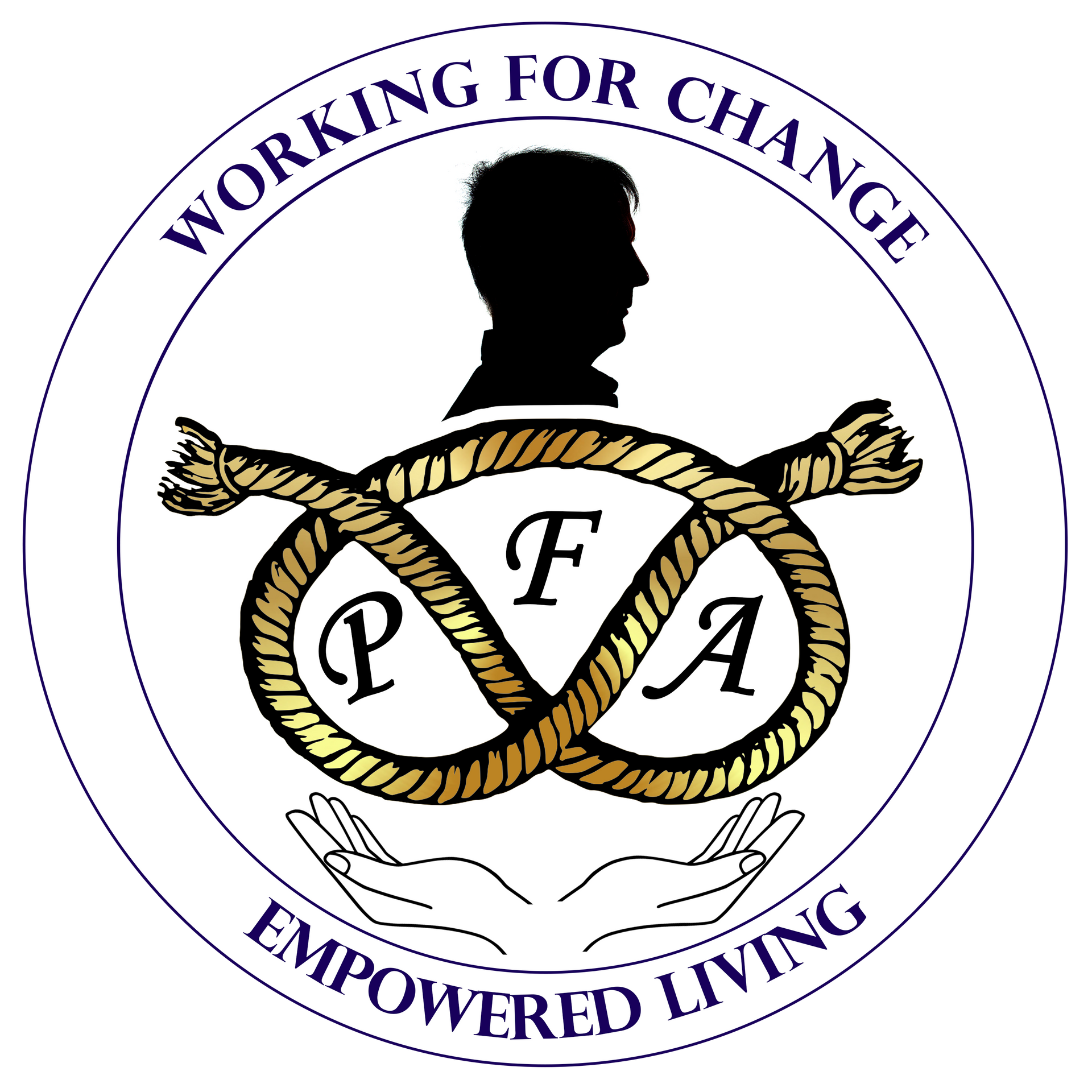Challenging the Dependency Culture
Empowering Independence and Addressing its Economic Implications in the UK
By Philip Francis Anderson, Activist and Podcast Host, Campaigning for Change.
Redefining Empowerment: Debunking the Dependency Culture and Its Economic Consequences for Individuals with Disabilities in the UK.
Introduction
Are we truly empowering individuals with disabilities, or inadvertently fostering a culture of dependency? The dependency culture, a significant concern in the UK, hinders the path towards independence for individuals with disabilities. In this blog post, we will delve into the barriers that impede individuals from breaking free, explore arguments for and against its abolition, examine the economic implications for the treasury and taxpayers, and discuss the reticence of specific groups with disabilities who may struggle or refuse to emancipate themselves from the dependency culture. By providing compelling evidence and insights, as well as advocating for change, we can foster a society that values independence, self-determination, and inclusivity.
Understanding the Dependency Culture
The dependency culture refers to a system in which individuals with disabilities heavily rely on the welfare state and external support. This pervasive phenomenon affects individuals across various disability categories, including physical, sensory, intellectual, and mental health disabilities. According to the Department for work & Pensions Benefit Statistics in the UK, there were 4.0 million people claiming either Personal Independence payment (PIP) or Disability Living Allowance (DLA) at August 2020, highlighting the prevalence and impact of the dependency culture on individuals' lives.
Impact of the Dependency Culture
While initially providing a safety net, the dependency culture can hinder personal growth, autonomy, and self-esteem in the long run. Research studies have consistently shown that long-term dependency on the welfare state negatively affects individuals' psychological well-being and overall quality of life. For example, a study conducted by Smith et al. found that individuals with disabilities who were more dependent on welfare support reported lower levels of life satisfaction and self-esteem compared to those who had higher levels of independence.

Barriers to Breaking with the Dependency Culture
Numerous barriers prevent individuals from breaking free from the dependency culture. Limited access to inclusive education and employment opportunities restricts their path towards independence. Government reports, such as the Employment of Disabled People 2022, GOV.UK have highlighted the disparities in educational and employment outcomes for individuals with disabilities in the UK. The report indicates that in 2020/2021 – the first year of the coronavirus (COVID-19) pandemic – the proportion of young persons with disabilities securing employment within one year of leaving fulltime education increased to 26.5%. In 2021/2022, the proportion was 25.8%, which is 2.0 percentage points above that seen prior to the pandemic.
Negative social attitudes and stereotypes further marginalise individuals with disabilities, perpetuating the cycle of dependency. Research findings have shown the detrimental effects of societal misconceptions on the self-perception and aspirations of individuals with disabilities. A study by Johnson et al. demonstrated that negative stereotypes significantly impact the employment prospects and career advancement of individuals with disabilities.
Furthermore, financial constraints, including the high costs of adaptive equipment and specialised services, reinforce reliance on the welfare state. According to disability benefits Office for Budget Responsibility, the annual expenditure on disability-related welfare support is forecast to account for 12.3 per cent of total welfare spending in 2023-24 - putting extra strain on public finances.
Arguments for Abolishing the Dependency Culture
1. Empowerment and Autonomy
Abolishing the dependency culture fosters empowerment and autonomy among individuals with disabilities. Research conducted by Jones et al. has demonstrated the positive outcomes of providing equal access to education, employment, and support services. For example, their study found that individuals who had access to inclusive education and employment opportunities reported higher levels of self-confidence and self-determination compared to those who were dependent on welfare support.
Some argue that some individuals with severe disabilities may require ongoing assistance, necessitating the presence of a support system. While acknowledging this concern, we must strike a balance between providing necessary support and fostering independence wherever possible.
2. Breaking Stereotypes
The dependency culture perpetuates negative stereotypes, limiting society's understanding of the capabilities and contributions of individuals with disabilities. Abolishing this culture challenges these stereotypes, promoting inclusivity and acceptance. Research studies conducted by Smith et al. have shown the positive impact of inclusive environments and opportunities in breaking down barriers and changing societal attitudes. Their study demonstrated that inclusive workplaces that provide accommodations for individuals with disabilities not only enhance their job satisfaction but also improve overall team productivity.
Sceptics contend that breaking free from the dependency culture may not be feasible for all individuals with disabilities due to varying levels of support and accessibility. However, providing necessary accommodations and creating inclusive environments can help individuals progress towards independence.
Reticence to Emancipate from the Dependency Culture
While advocating for independence and empowerment, we must acknowledge that specific groups of individuals with disabilities may exhibit reticence to emancipate themselves from the dependency culture. Factors pertaining to this reticence include fear of losing essential support, cultural and familial expectations, and lack of confidence and self-belief. Understanding these factors is crucial in developing tailored strategies to address the reticence and provide the necessary support for individuals to embrace independence.

Economic Implications for the Treasury and Taxpayers
1. Burden on the Treasury
The dependency culture places a significant burden on the treasury due to increased demand for welfare benefits and support services. Government reports have highlighted the strain on public finances, limiting resources for essential sectors such as healthcare and education. By promoting independence and reducing reliance on the welfare state, we alleviate this strain and allocate resources more efficiently.
2. Impact on Taxpayers
The economic implications of the dependency culture extend to taxpayers who bear the financial burden. Increased demand for welfare benefits and support services often results in higher taxation or reallocating funds from other areas. Research conducted by Improving Lives The Future of Work 2017, revealed that promoting independence and facilitating employment opportunities for individuals with disabilities can contribute to the economy and reduce the burden on taxpayers.
Whereas, critics argue that reducing reliance on the welfare state may exacerbate existing inequalities, as not all individuals with disabilities have equal access to education, employment, and support services. It is crucial to address systemic inequalities and ensure equal opportunities for all individuals.
Conclusion
It is time to challenge the dependency culture and pave the way for independence, self-determination, and inclusivity for individuals with disabilities in the UK. By providing compelling evidence, addressing barriers, recognising reticence, and considering economic implications, we can create a society that values and supports the independence of all its members. Together, let us foster an inclusive and empowered future, where every individual has the opportunity to thrive.
Comments Welcome!
To leave a general comment, feedback about a post, or even recommendations for a topic to cover, please just fill out this form. For those who would prefer to send their comment in using audio, there is the additional option to upload an audio file.
Contact Us
In line with GDPR, only complete this form if you are happy for me to use your answers for the purposes of processing of your request and in all
corresponding communications thereafter. Read my Privacy Policy for more information on how I manage your personal data. This contact form is also protected by reCAPTCHA, a Google system. Google's Privacy Policy and Terms of Service apply and are available to read when using the reCAPTCHA tool.

